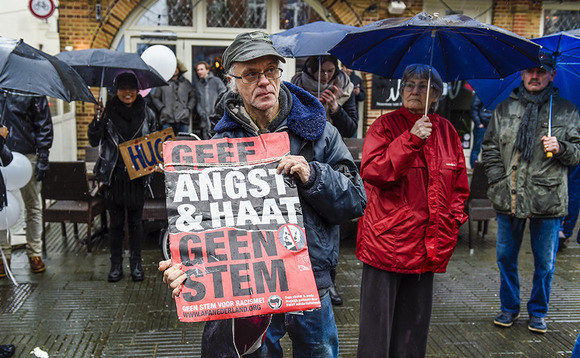
Dutch elections: A rosier picture for PE

In March, the Dutch went to the polls to determine the shape national politics would take for the next four years through parliamentary elections. The result is likely to be positive for the local private equity industry. Alice Tchernookova reports
With an 80.2% turnout, the parliamentary election that took place in the Netherlands on Wednesday 15 March put four main parties under the spotlight: Mark Rutte's liberal VVD party (People's Party for Freedom and Democracy), winning with 33 seats; Geert Wilders' controversial far-right and anti-Islam party PVV (Party for Freedom), which after weeks of leading the polls came second with 20 seats; and the CDA (Christian Democratic Appeal) and D66 (Democrats 66) parties with 19 seats each.
Meanwhile, the Dutch labour party PvDA, which since 2012 had been in a coalition government with VVD, suffered a historic defeat with its parliament seats shrinking from 38 to a mere nine.
The Netherlands voted against a Nexit by a landslide. They voted for continuity, stability, the EU, and an open and welcoming attitude to the world and the future" – Marc van Voorst tot Voorst, Nederlandse Vereniging van Participatiemaatschappijen
The next step for the Netherlands is now to form a coalition government, which should logically include the VVD, the CDA and D66, thus sidelining Wilders.
"The Netherlands voted against a Nexit by a landslide," says Nederlandse Vereniging van Participatiemaatschappijen (NVP) deputy director Marc van Voorst tot Voorst. "They voted for continuity, stability, the EU, and an open and welcoming attitude to the world and the future."
Regardless of what the next coalition will look like, the Dutch private equity association will no doubt welcome one development: Labour, which stood as a mighty adversary in recent years, will be out of contention for some time.
New deal
Labour's attacks against the private equity industry started in 2015, when in the aftermath of a bankruptcy suffered by Sun Capital-backed department store V&D, MP Henk Nijboer introduced a private members' bill in parliament titled Private equity – end to the excesses, targeting the industry with a set of changes.
Although at the time, the proposed measures were largely decried by the industry, NVP acknowledges the positive impact those had on the long run. Says van Voorst: "Labour made us realise it is our responsibility to communicate more with society and parliament; as a result we increased our communication efforts and will continue to do so."
In the run-up to the elections, NVP co-organised a financial debate involving representatives of the main running parties, during which participants were asked to express their views on the advantages and drawbacks of private equity for the Dutch economy. "Most were very positive," adds van Voorst. "We are happy about the opinion the winning parties have of the sector."
Wouter Koolmees, MP and member of D66, made the following statement during the discussion: "In 2006-07, [former minister of economic affairs] Joop Wijn called private equity players 'locusts' [jumping from one business to another]. I think since then, we have made laws to prevent this type of behaviour, and also to prevent the excessive use of debt financing. I support that But private equity is important for the Dutch economy as they make investments in equity that are essential for our companies to grow further."
Fresh threats
Recent remarks made by Nijboer and incumbent finance minister Jeroen Dijsselbloem could however revive the debate around wider M&A practices, which could in turn impact private equity in the Netherlands. In an opinion article published earlier this month, Nijboer renewed his attacks against finance. Praising the recent rejection by Anglo-Dutch company Unilever of a €130bn takeover bid made by American food giant Kraft Heinz, he spoke of the need to preserve companies' national identity, and warned of the "danger" represented by an "anglo-saxon model [that sacrifices] everything for shareholder returns on the short term, through mergers and acquisitions that fail more often than they succeed".
In the same vein, Dijsselbloem recently pointed out the need for the government to set up an anti-takeover panel, aiming to protect local businesses against "aggressive takeovers" by foreign companies. Citing a law recently proposed by the government that would seek to prohibit or reverse takeovers in the telecoms sector, the minister suggested the measure should be extended to other sectors too.
Says van Voorst: "Some signs do indicate that certain people are concerned with this issue – a few political parties seem to be flirting with the idea, and the departing minister of economic affairs [Henk Kamp] said different options were being reviewed and conclusions would be drawn. But whether it will lead to formal laws is not a certainty – no formal proposal has so far been made."
Latest News
Stonehage Fleming raises USD 130m for largest fund to date, eyes 2024 programme
Sponsor acquired the public software group in July 2017 via the same-year vintage Partners Group Global Value 2017
Stonehage Fleming raises USD 130m for largest fund to date, eyes 2024 programme
Czech Republic-headquartered family office is targeting DACH and CEE region deals
Stonehage Fleming raises USD 130m for largest fund to date, eyes 2024 programme
Ex-Rocket Internet leader Bettina Curtze joins Swiss VC firm as partner and CFO
Stonehage Fleming raises USD 130m for largest fund to date, eyes 2024 programme
Estonia-registered VC could bolster LP base with fresh capital from funds-of-funds or pension funds









